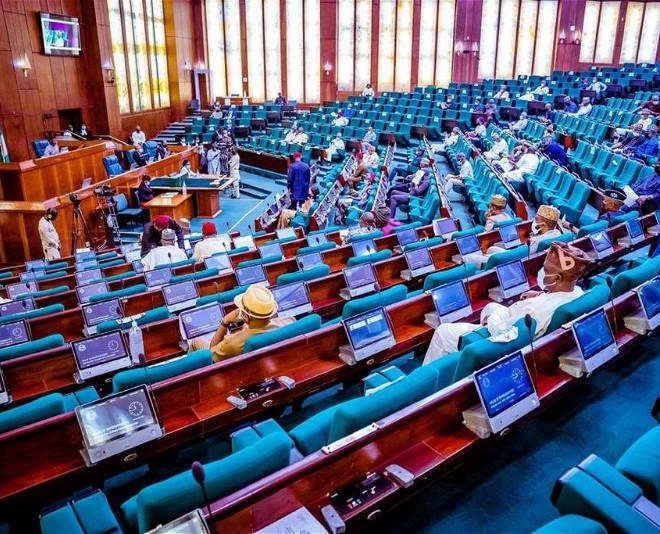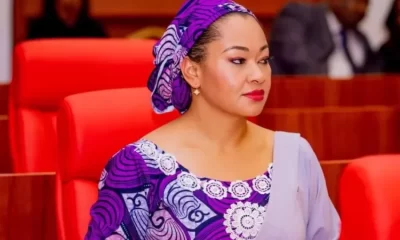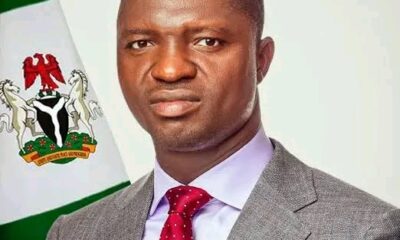News
House of Reps Pass 39 Constitutional Amendment Bills for second reading

The House of Representatives on Tuesday passed 39 bills for the second reading, all aimed at amending the 1999 Constitution. The bills, covering judicial reforms, legislative processes, inclusive governance, security and policing, and electoral matters, were considered collectively following a motion by House Leader Hon.
Julius Ihonvbere. Deputy Speaker Benjamin Kalu, who presided over the plenary, directed that the House suspend its rules to fast-track the bills to the Constitution Review Committee for further consideration.
Among the bills that progressed to the next stage is one proposing that general elections for the President, State Governors, National Assembly, State Houses of Assembly, and Local Government Councils be conducted simultaneously on a single date determined by the Independent National Electoral Commission (INEC) in consultation with the National Assembly. Another bill seeks to make it mandatory for national and state executive members of political parties to resign before contesting elective positions.
Other proposed amendments grant INEC the authority to conduct local government elections, regulate election timelines, and require members of the National and State Assemblies to officially resign from their political parties before defecting. Another key bill extends the original jurisdiction of the Court of Appeal to include election petitions related to governorship and deputy governorship positions.
Several other bills aim to restructure electoral administration, including granting the National Assembly power to alter election tribunal timelines, establishing a National Local Government Electoral Commission to oversee council elections nationwide, and transferring the authority to conduct local government elections from State Independent Electoral Commissions to INEC.
The bills also propose the creation of special legislative seats for physically challenged individuals at the federal, state, and local levels, as well as six reserved seats for special interest groups in the House of Representatives. Another significant proposal seeks to establish State Police and Local Government Police to enhance security at subnational levels.
Additional measures under consideration include granting the Chief Justice of Nigeria the power to proclaim the inauguration of the National Assembly, establishing a Federal Capital Territory (FCT) House of Assembly, removing transitional law-making powers from the executive, and setting a timeframe for the executive to present international treaties to the National Assembly for enactment.
Other bills focus on judicial reforms, such as making National Judicial Council recommendations mandatory for the removal of heads of Nigerian courts, establishing Ecclesiastical Courts of Appeal at the federal and state levels, making the Court of Appeal the final authority on governorship and legislative election petitions, and conferring jurisdiction on the Federal High Court to handle offenses related to electoral law violations.
-

 News2 days ago
News2 days agoBobrisky Detained by Immigration After Return to Nigeria
-

 News2 days ago
News2 days agoWomen Affairs Minister, 64 Others Honoured by Arise News
-

 Metro News2 days ago
Metro News2 days agoAPC, INEC Behind My Recall Petition – Natasha tells Supporters
-

 News2 days ago
News2 days agoEmir Sanusi II Tweaks Tradition, Holds Hawan Nasarawa in Motorcade After Horse Ride Ban
-

 Metro News2 days ago
Metro News2 days agoSenator Natasha Defies Orders, Arrives Kogi Homecoming Rally by Helicopter
-

 Metro News2 days ago
Metro News2 days ago2027: C’River APC Rules Out Automatic Tickets for National Lawmakers
-

 Metro News2 days ago
Metro News2 days agoGovernor Nwifuru Suspends Council Chairman, Orders Arrest of Six Commissioners
-

 News1 day ago
News1 day agoBREAKING: President Tinubu Sacks Kyari as NNPCL Boss, Appoints Replacement
